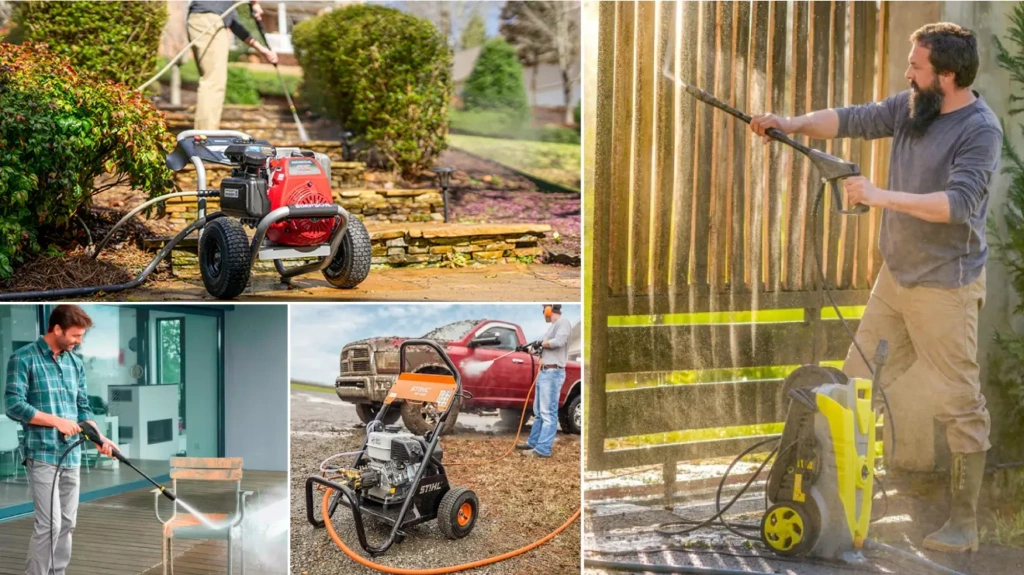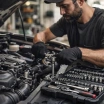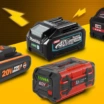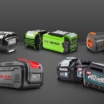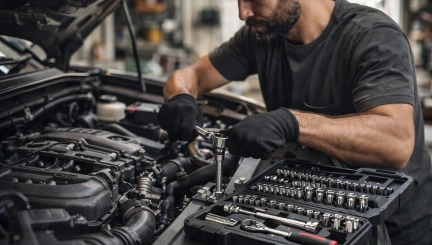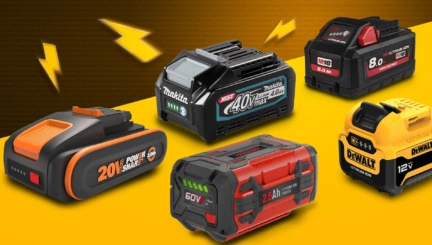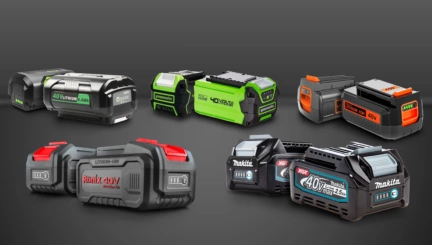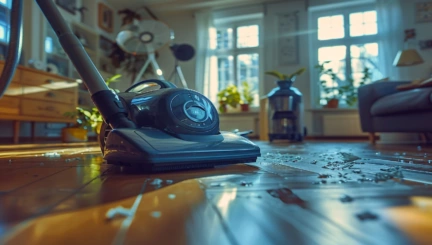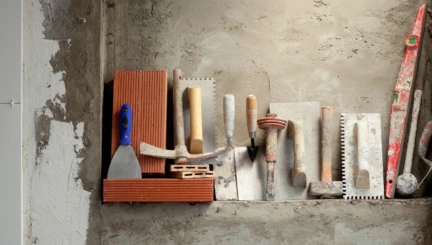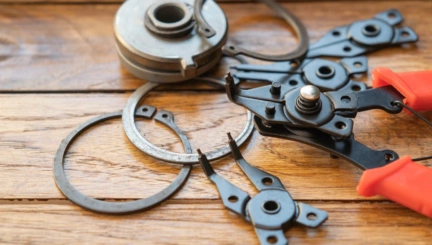- 19min
- 4463
- 0
It’s a bright sunny day, you’re standing outside, looking at your car. It has seen better days, with all the dust and mud on it from those fun road trips and less fun everyday commutes. It’s time for a wash.
Pressure washers (or you may know them as power washers) have become an extremely popular option for washing cars or getting rid of the annoying stains on concrete and wood. You’ve probably seen one of them either in a neighbor’s hands or on social media and wondered how they work, well, let us explain!
Experience Soaring Sales with Top-Notch Wholesale Pressure Washers
Basically, the water (usually from a garden hose) goes into the motor, gets pressurized, and then it gets sprayed out of a narrow nozzle at high speeds. This pressure can remove meat from the bone if not careful (not really but be careful), so it can remove all the filth that may have been built up on your front yard walkway too!
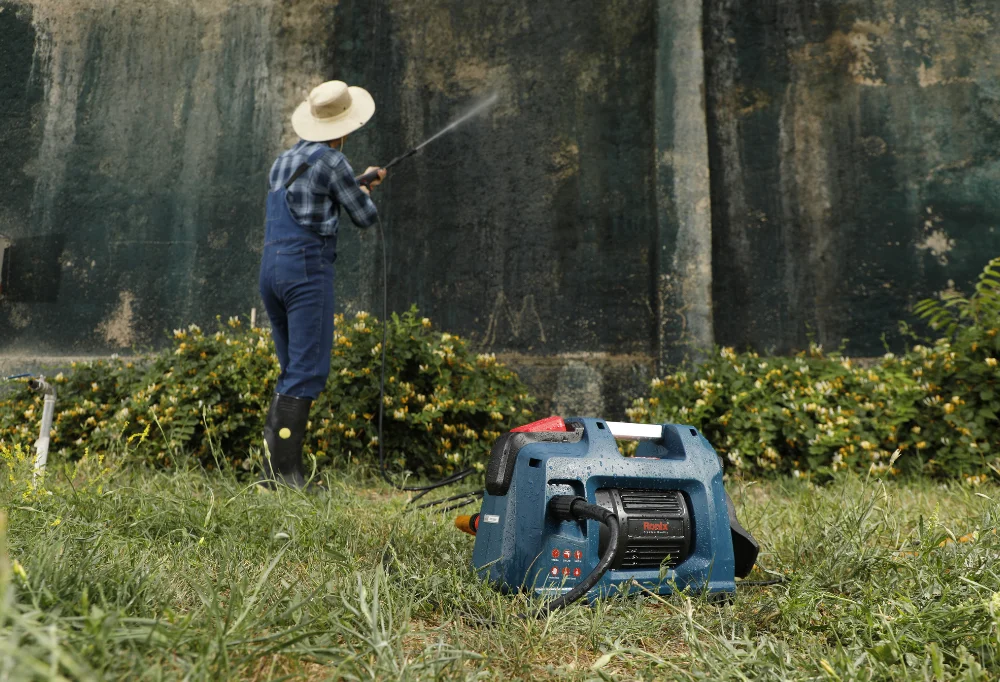
So yes, they are great, but there are just too many options on the market, how can you possibly choose one?
Luckily, we have prepared a complete buying guide for you to help understand the different types, the factors to have in mind, and in the end, how to pick the Best pressure washer (top-rated pressure washer!)
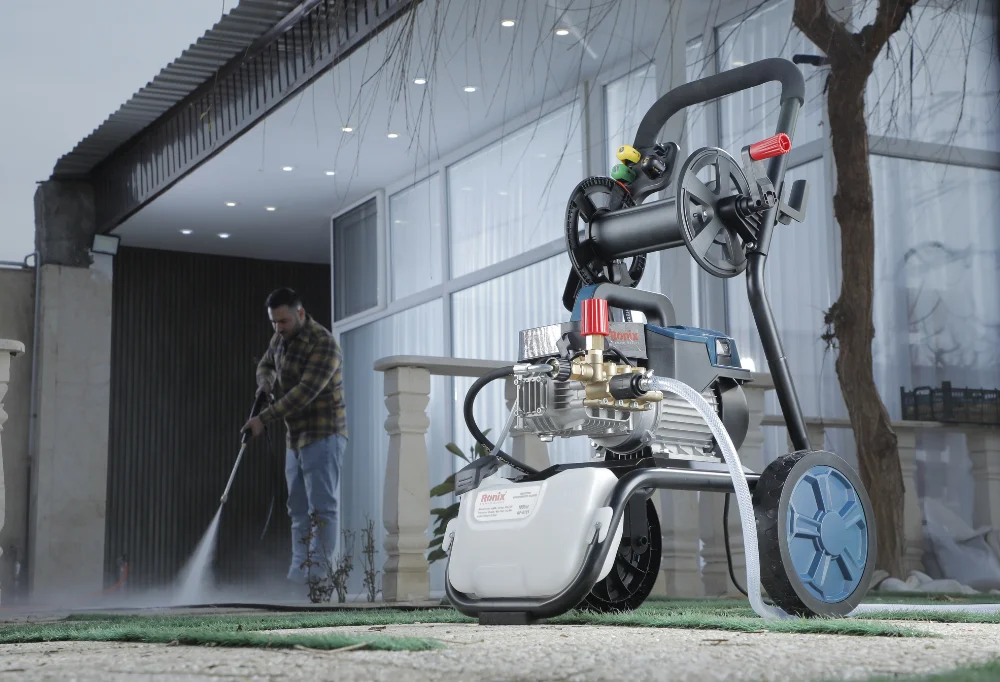
Best Pressure Washer Buying Guide
Picking the right Best pressure washer makes all the difference. When I bought my first pressure washer (Ronix RP-0180), I was kind of overwhelmed with the choices: electric or gas? How much PSI is enough? What on earth is GPM? I quickly realized that understanding these features and your specific needs is necessary.
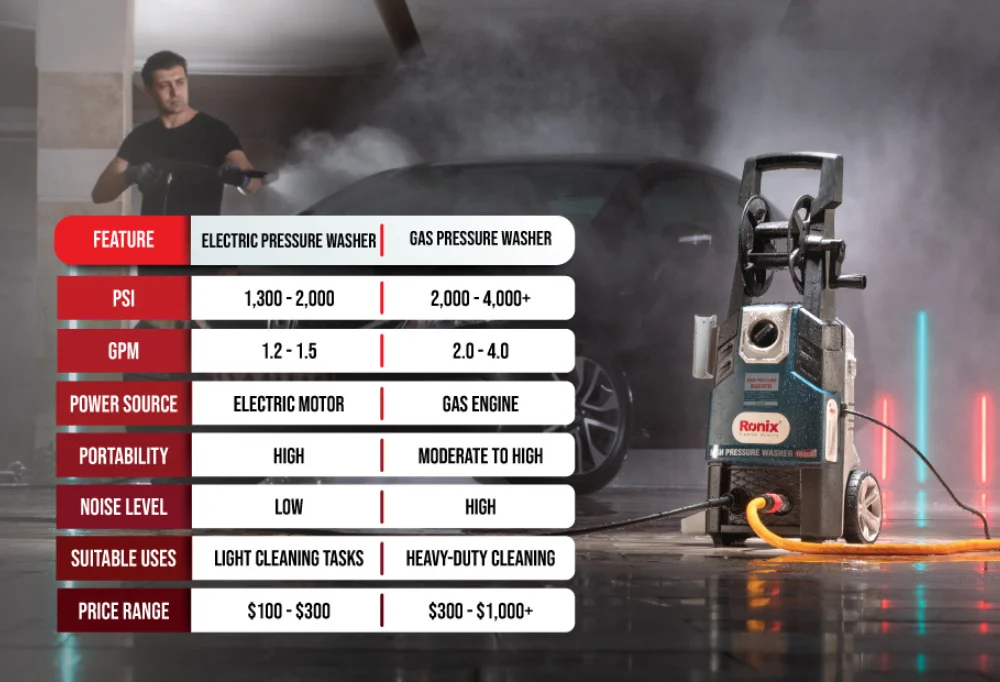
Let’s get into the details, what do you exactly need to know? Or a better question:
What to Consider When Buying a Pressure Washer?
There’s a lot to think about when it comes to choosing an option. You need to know what you’ll actually be using it for. Are you gonna use it as a carwash? Are you trying to clean that old driveway? Based on your actual use, you can choose the right type, and get one with enough power. Other features may be important too, so let’s get into the features you should keep in mind to get a high-rated pressure washer:
Types
The main thing that makes power washers different from each other is the power source. There are two main types: Electric and Gas.
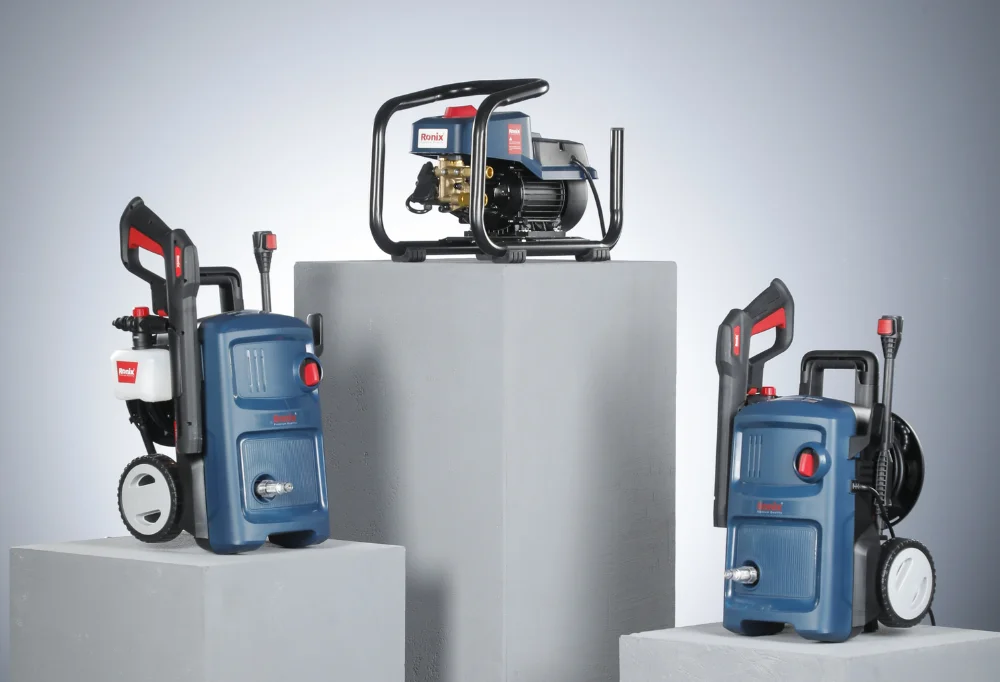
Each has its own advantages and can be good for different tasks, here’s a deeper dive into their differences:
Electric Pressure Washers
These are the easier-to-use options. Electric pressure washers are really convenient and they’re perfect for people who just want something to reliably clean surfaces with.
Pros:
- Quieter: Don’t let this one fool you, it’s more important than it seems. Electric models are much quieter, so you won’t disturb the neighbors and you can work without worry! Because of this and the fact that they are lighter, they’re easy to use around the house.
- Easy to Keep: Another advantage of electric pressure washers is that they don’t really need upkeep. You don’t have to worry about any oil changes or getting gas (especially with these gas prices), it just gives you an easy and clean experience.
- The Emissions: No gas, no burning, no emission. You can even use them indoors, like in your garage.
Related Article: the Best Cordless Pressure Washers on the Market!
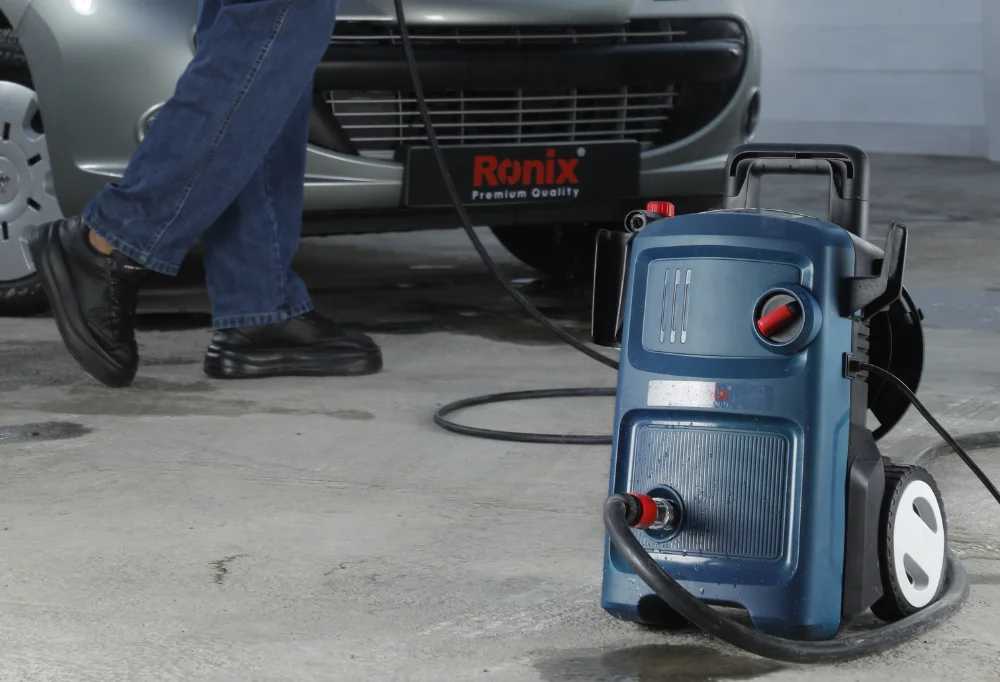
Cons:
- Less Power: Electric pressure washers have lower PSI and GPM, and they may struggle with really tough stains or larger areas.
- Cord Problems: If you pick a corded option, you’ll be connected to an outlet and that can limit your range.
Ideal Use: The electric models are great for washing cars, cleaning your patio furniture (we both know you’ve been letting that table get dirtier than it should), and other small to medium tasks. Basically amazing for the routine stuff.
Gas Pressure Washers
These are the heavy-duty ones, the ones you go for when you have the big jobs, or you are dealing with some really stubborn dirt!
Pros:
- Higher Power (No, not God): Higher PSI and GPM, not a stain in sight that can survive through the water pressure.
- Move Wherever: No cords, so you can take them anywhere, whether you are going for a large driveway or remote job sites.
- Do-it-all: What are you trying to do? Stripping paint, covering large areas, and even preparing surfaces for painting.
Read More : The Best Gas Pressure Washer to Get and Ones to Skip
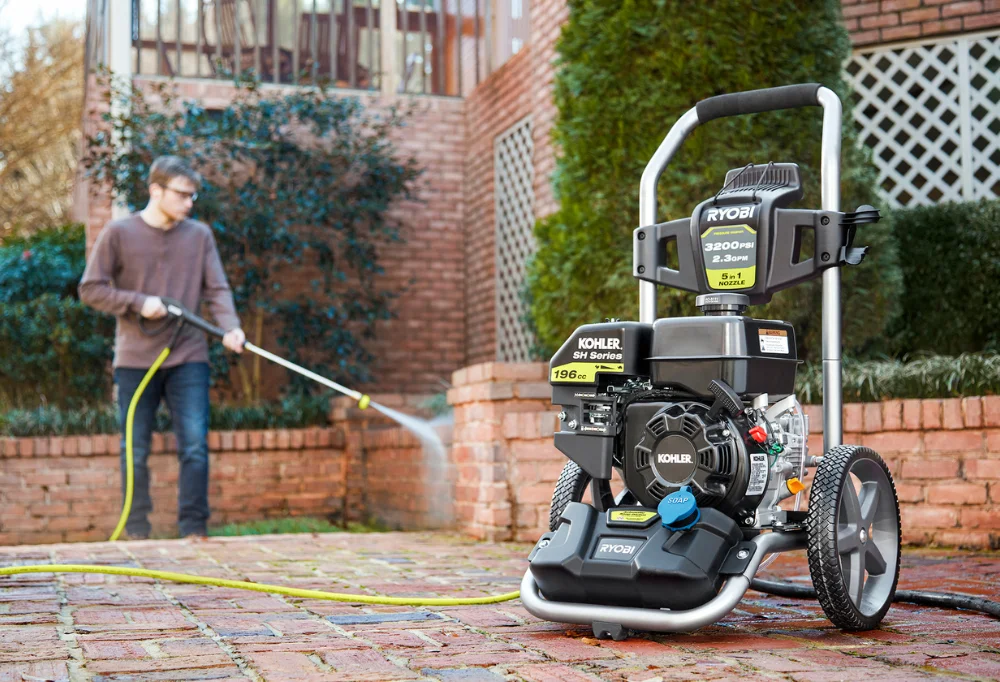
Cons:
- The Noise: Gas pressure washers are much louder, so they aren’t exactly great to use in the neighborhood.
- Upkeep: They need regular maintenance if you want things to run smoothly. Oil changes fuel refills, all of that. They are somewhat heavy too which can tire you if you use them for long.
Ideal use: You should use them for those tough cleaning jobs, commercial uses in the factories and all, or if you have large properties that you need to take care of.
Best Pressure Washer Output
As we know, Outputting water is all a pressure washer does, so we need to know the factors that affect that output. Well, there are two you measure this output with: PSI and GPM. These give you a better idea of your pressure washer’s power. Let’s get more familiar with them:
PSI (Pounds per Square Inch)
PSI shows the pressure of the water that is coming out. Simply, it’s how powerful the water stream is. But how much PSI do you actually need?
- Light-duty (1300 to 1800 PSI): Great for washing cars, cleaning furniture, and washing the patio. It’s enough power to clean everyday stuff without damaging them.
- Medium-duty (2000 to 3500 PSI): Now this is a bit more pressure, so you can go for driveways, garage floors, stone surfaces, or even siding. The higher power can save you time when doing tasks.
- Professional (3500+ PSI): You can basically do anything with this much pressure. Strip paint, industrial and large-scale cleaning, even removing graffiti from walls! They are really powerful so you need to use them with caution to avoid damaging the surfaces, or more importantly, yourself!
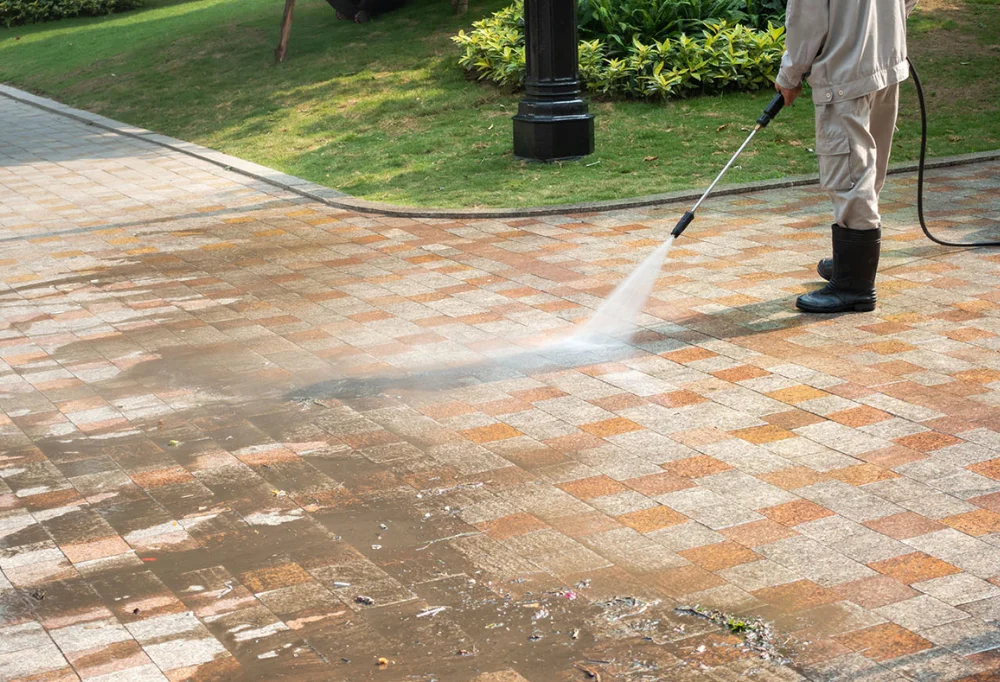
GPM (Gallons per Minute)
This is the flow rate of water through the pressure washer. GPM is the amount of water that is coming out every minute. These are some general ratings you can have in mind:
- Low GPM (1 to 2.5 GPM): The basic models that are good for light duty and small tasks. You can rinse off the dirt (assuming it’s dirt) without using too much water.
- Medium GPM (2.5 to 4 GPM): This amount gives you faster cleaning on larger surfaces.
- High GPM (4+ GPM): The powerful pressure washers are mostly used in industrial usage since they are quick and thorough.
Suitable Surfaces for Best Pressure Washers
We’ve already talked about how useful pressure washers can be, but what are some actual, specific uses?
Concrete:
Dirty driveways or sidewalks can have a new life when you clean all the dirt, grime, and mold.
Wooden Decks or Fence:
Pressure washers are great for cleaning wooden fences or decks, but be gentle with the wood.
House Siding:
Whether it’s PVC or brick, you can clean the dirt or even algae, and get a fresh clean exterior.
Vehicles:
Why would clean your car, truck, or boat with a bucket and a sponge? Use a Best pressure washer and save a ton of time. Just be careful about the paint!
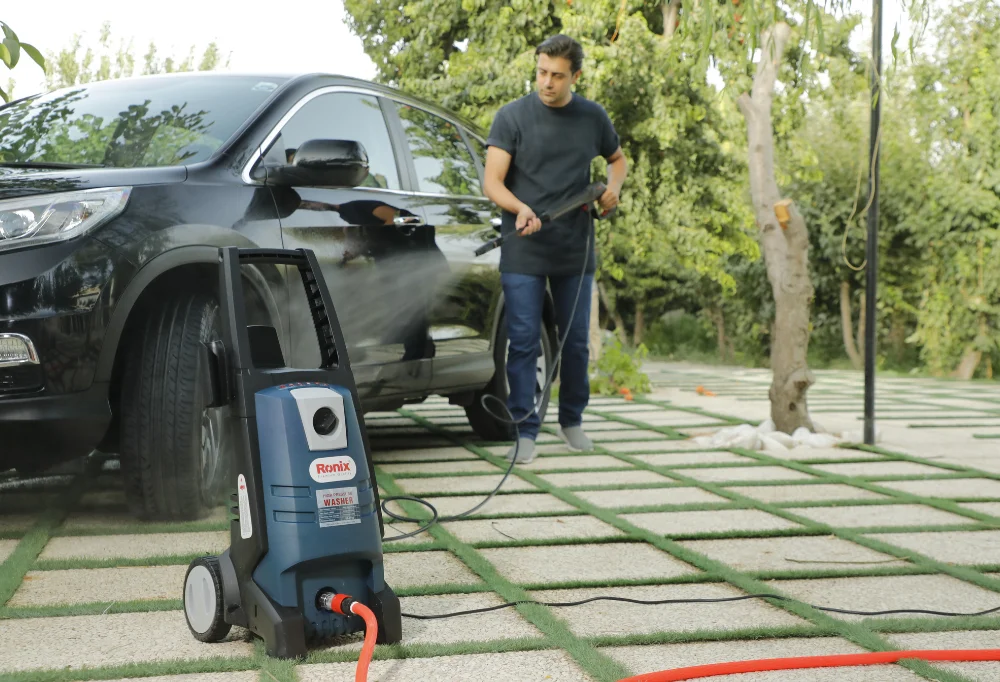
Outdoor Furniture:
You know how dirty outdoor furniture can get from just sitting outside. You can clean them using one of these tools, metal or wood.
Grills:
Grills can be such a pain to clean. All that grease and food residuals, making your once-silver-grill into coal black. Power washers can cut through them easily and prepare you for the next BBQ.
Swimming Pools:
You can use the Best pressure washer to clean both around the pool and even the pool walls when it’s drained.
There are obviously more things you can use the pressure washer for, but we wanted to mention some things so you get more familiar with the uses.
How to Choose a Pressure Washer Nozzle
The nozzle is also very important when it comes to choosing the best pressure washer. It affects the spray pattern and the intensity of your water, so it can make a big difference. Here’s a quick guide:
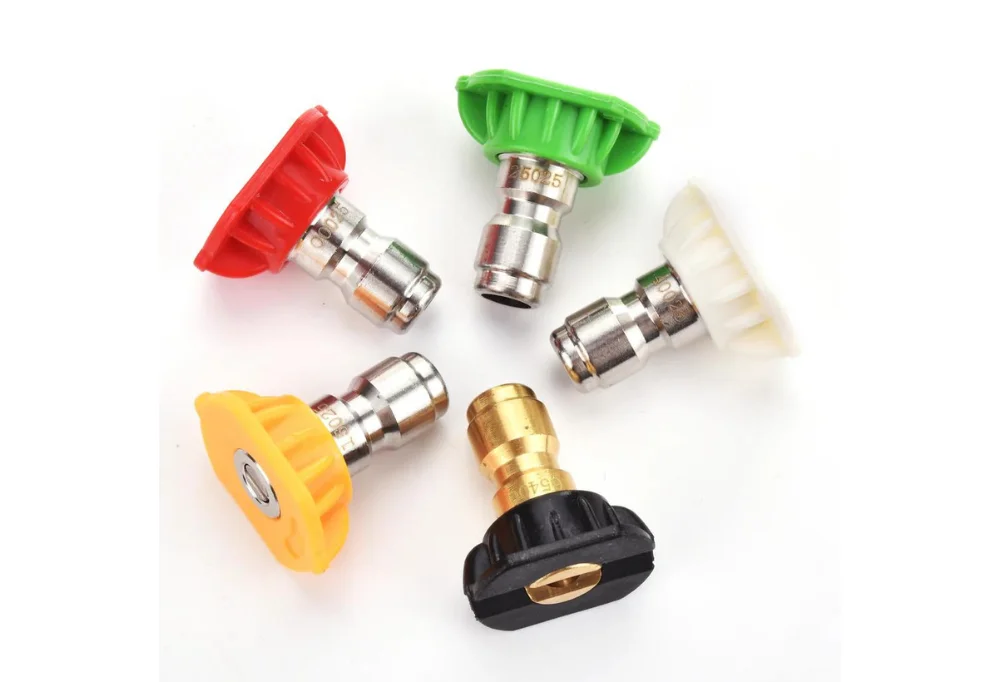
0° Nozzle (Red):This one is the most powerful choice you have. It’s very concentrated and is great for removing tough stains. Because of how narrow it is, it covers a small area, but you need to be careful not to damage the surface or yourself.
15° Nozzle (Yellow): It’s a narrow spray, but not as narrow as the last one. It’s still powerful enough to strip paint! It can also clean concrete, so you use this one either for getting surfaces ready for painting or doing some heavy-duty tasks.
25° Nozzle (Green): This is what you go for if you got some general use. It’s the one I use for the everyday (well, more like once in a while) cleaning tasks. It has a wider spray and it’s less intense.
40° Nozzle (White): Really wide and gentle, and used for cleaning delicate surfaces like windows and vinyl sidings. It’s also good for washing off soap.
Soap Nozzle (Black): As the name shows, this one applies soap directly to the surface at low pressures. It’s good for when you want to apply soap to something before washing it off.
In my experience, it’s best to start with a wider nozzle (like the 25° one), test it, then if you need something more powerful go for a narrower nozzle. This way there’s less chance of an accident happening.
Pressure Washer Parts
After saying all of this, what exactly is a pressure washer?
The Pump: This is the heart of the pressure washer. There are different types of pumps, but I won’t get into it to spare you the confusion!
The Engine: The engine/motor is what powers the pump. Electric models have electric engines in them, which are quieter and need less maintenance. The gas-powered ones have gas engines, which are more powerful.
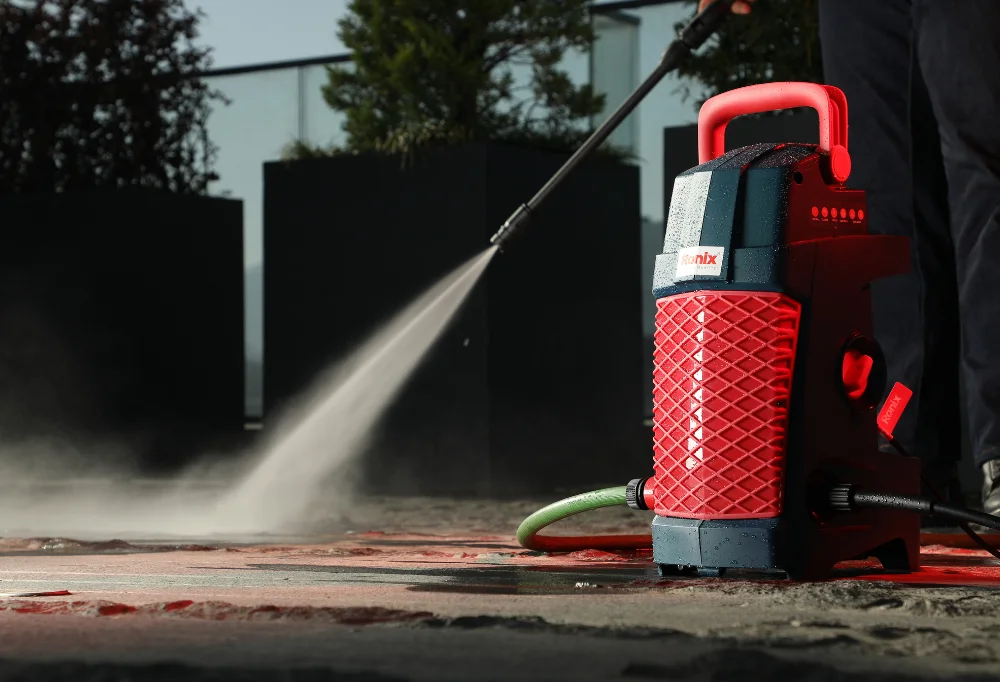
The Hose: These are no normal hoses; they are special high-pressure models. They can tolerate the intense water pressure, just make sure they are long enough for the purpose you are going to use them for.
The Nozzle: Already said everything that could be said. Just know that most pressure washers come with a set of interchangeable nozzles you can use for different tasks.
The Spray Gun: This is the part you hold to direct the water, and it connects to the hose. It has a trigger to control the stream.
Knowing the different parts helps you with your choice, so it’s better to be familiar with them.
Extra Features
Some extra features may make your life easier:
Detergent Tanks: Some models have built-in detergent tanks that apply soap (or any other cleaning agent) to the surface you are working with. So, no need for a separate bottle.
Adjustable Pressure Settings: You can change the pressure for different tasks you may have with this setting. Sometimes you may need to switch tasks, one second you are washing a window and need a gentle spray, next minute you want to blast the crap out of a stain with high pressure.
Wheels/Handles: Heavier models can be a pain to carry (Shoulder pain to be exact), and wheels make them much easier to carry, especially if you’re covering a large area.
Best Pressure Washer Brands
It’s undeniable that brand reputation exists for a reason. Getting a Best pressure washer from a brand that is famous for their products will most likely get you better quality, performance, and durability. Let’s take a look at some of the leading brands with their advantages and drawbacks:
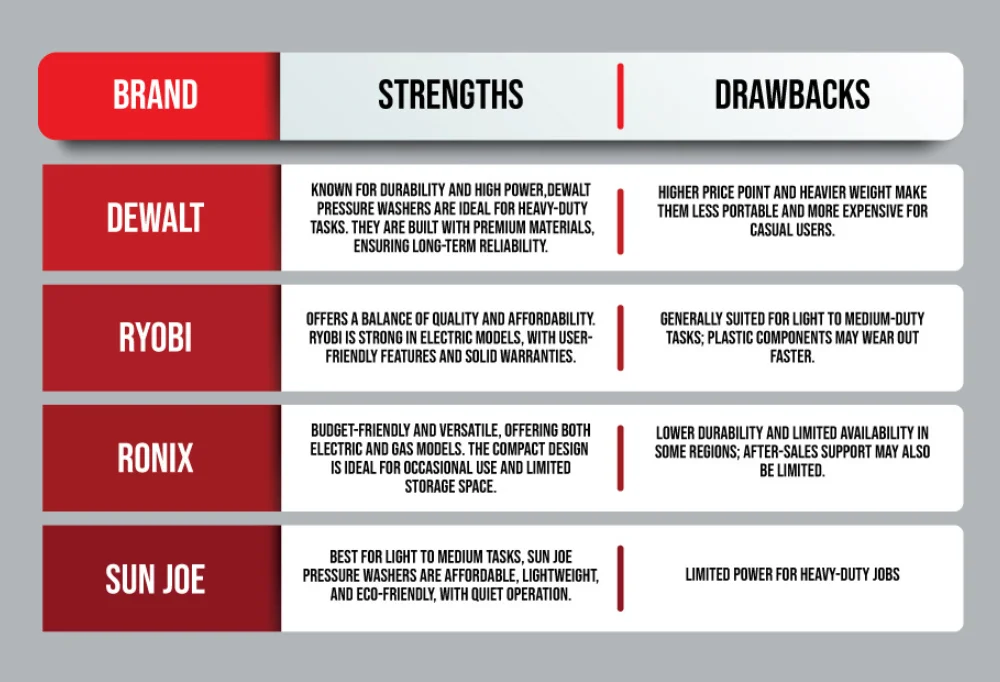
DeWalt
DeWalt is one of the most famous tool brands in the world, not just pressure washers. They’ve been a popular choice for people who do DIY stuff and professional tasks. DeWalt pressure washers usually have high PSI and GPM, and they are usually used for heavier-duty tasks. They have everything from big gas-powered models with wheels to smaller cordless ones, and from 550 PSI to a whopping 4400 PSI! This amount of power makes the DeWalt power washers a bit heavier than others, but don’t worry! Most of the DeWalt models have handles and wheels to make moving them a bit easier.
DeWalt is a premium brand, so the pressure washers are more expensive, but since they last longer and have better quality, you may want to suffer the cost and get one of the best pressure washers on the market!
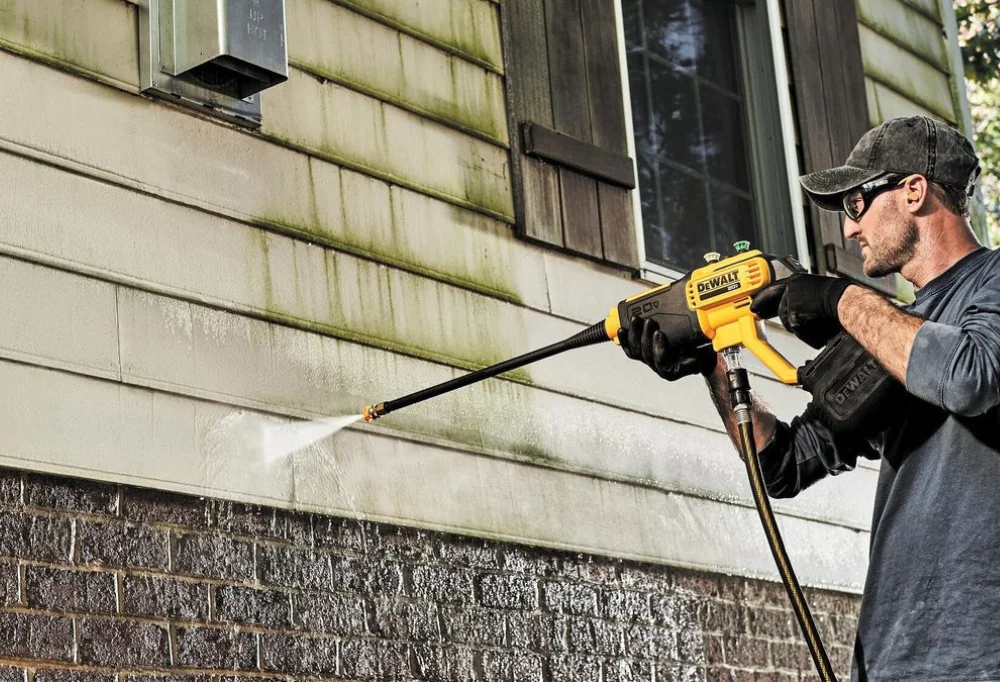
Ryobi
You may have heard of Ryobi before, the company that gives you a balance of quality, reasonable prices, and being easy to use. All these reasons make Ryobi pressure washers the favorite when it comes to homeowners. They are strong in the electric market with their efficient and powerful power washers, designed for mostly light or medium tasks (not exactly great for those huge driveways you may have around).
As good as these pressure washers are, again, they may not be as powerful as you want them to be, and some of their parts are made of plastic which may make them a bit less durable.
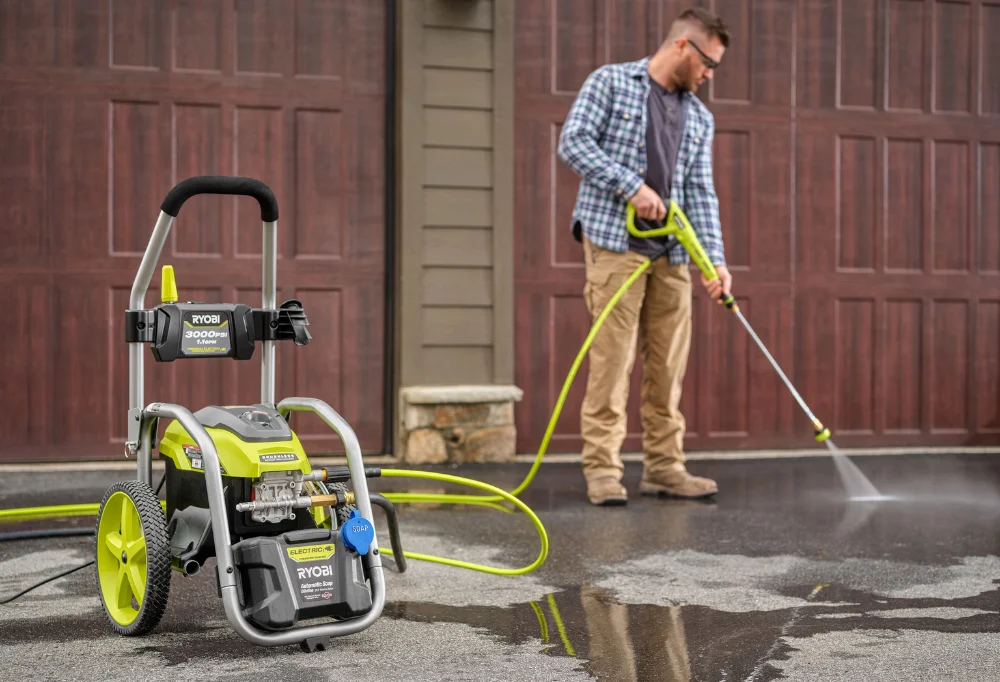
Ronix
Ronix is a budget-friendly option that is powerful enough for most cleaning tasks you have lying around. The pressure washers are usually compact and easy to store, which is great for the tight and crowded spaces we have today. Ronix focuses on electric pressure washers, both corded and cordless. They are just powerful and affordable enough to get things done. With all their advantages, you still need to keep in mind that Ronix RP-0100 pressure washers may not be the most durable option on the market.
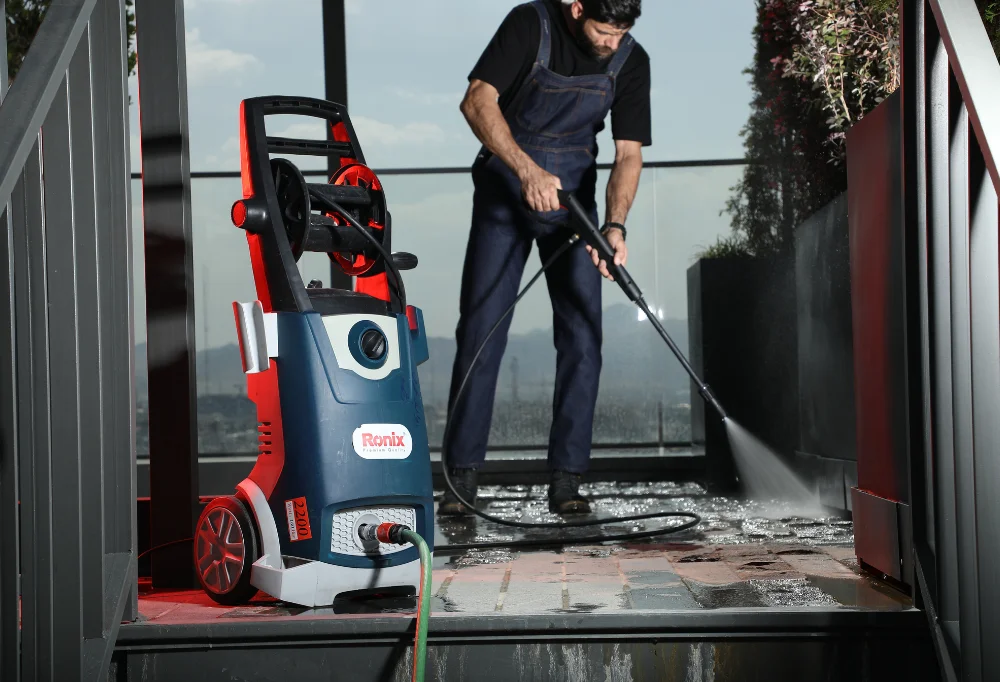
Sun Joe
Specializing in electric pressure washers, Sun Joe has light and easy-to-use models that are perfect for general use. They are relatively affordable too, but it’s for the best to not use them for heavy-duty stuff.
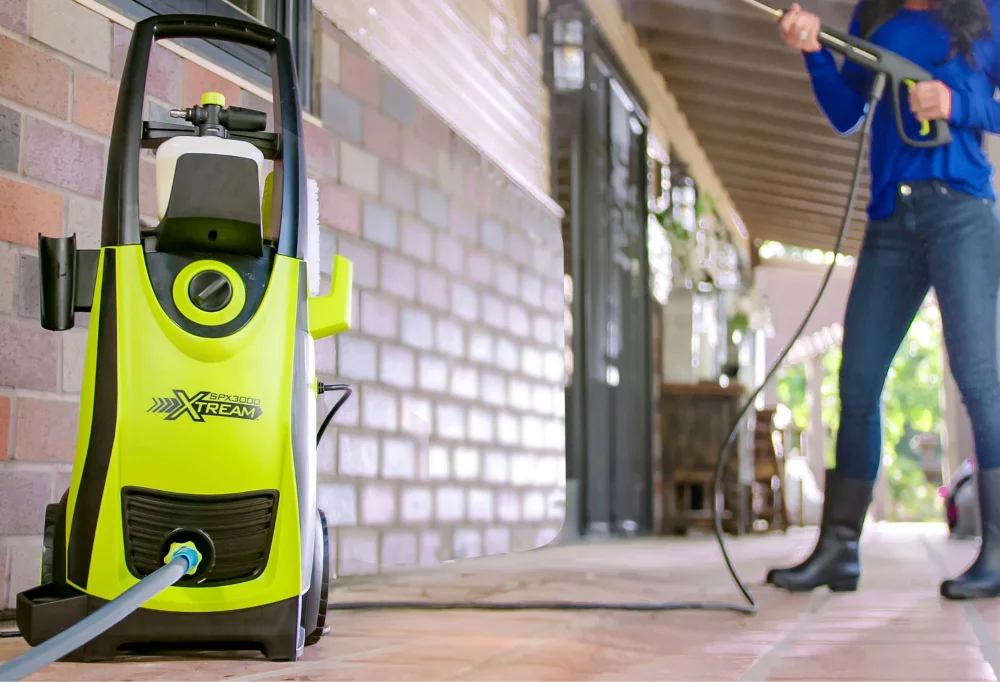
Knowing the best brands on the market can help you make better decisions when it comes to choosing a top-rated pressure washer.
Best Pressure Washer for Cars
Cars are probably the most useful case when it comes to pressure washers. The existence of these amazing tools makes the process of washing cars faster, more efficient, and even fun (certainly more fun than using a sponge as we already talked about). But not all pressure washers are created equally. The best pressure washer for cars is the one that is a mix of power and gentleness. You want to clean your car without damaging the paint, or worse, denting it (yeah that happens with powerful pressure washers).
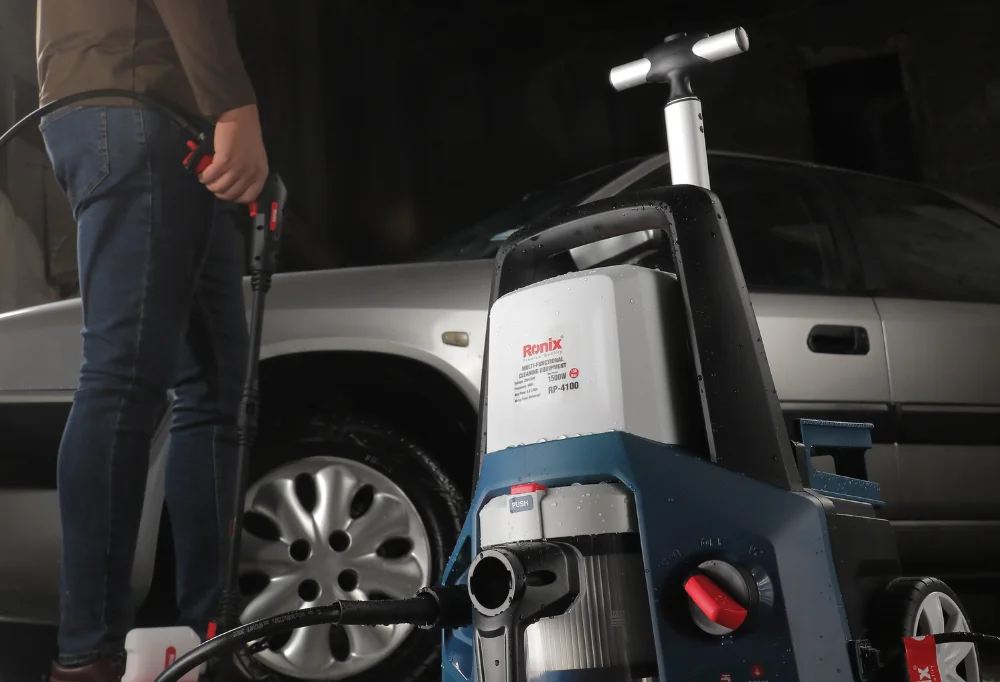
Let’s look at some of the features you can look for when you are trying to get one:
PSI/GPM: You want 1200 to 1900 PSI, and 1.4 to 1.6 GPM for washing cars.
Adjustable Nozzle: Should get either an adjustable nozzle or multiple options to use the appropriate nozzle for the situation. The best nozzle options for cars are 25-degree and 40-degree ones.
Detergent Tanks: It’s just convenient. Easily mixes the water and detergent.
Electric: Choosing an electric pressure washer is probably your best option for washing cars. They are quiet, easy to maintain, and they have just the right amount of power.
Best Pressure Washer for Home Use
Cleaning the deck, patio, driveway, and outdoor furniture just gets so much easier with a high-rated pressure washer. You get something powerful, versatile, and easy to use; and you get the job done.
Usually, for home use, you should buy one with 1500 to 2500 PSI and 1.2 to 2.0 GPM. You already know all about nozzles, either get multiple options or just get an adjustable spray wand to help you out with the variety of your tasks.
Read More : Best Pressure Washers for Home Use
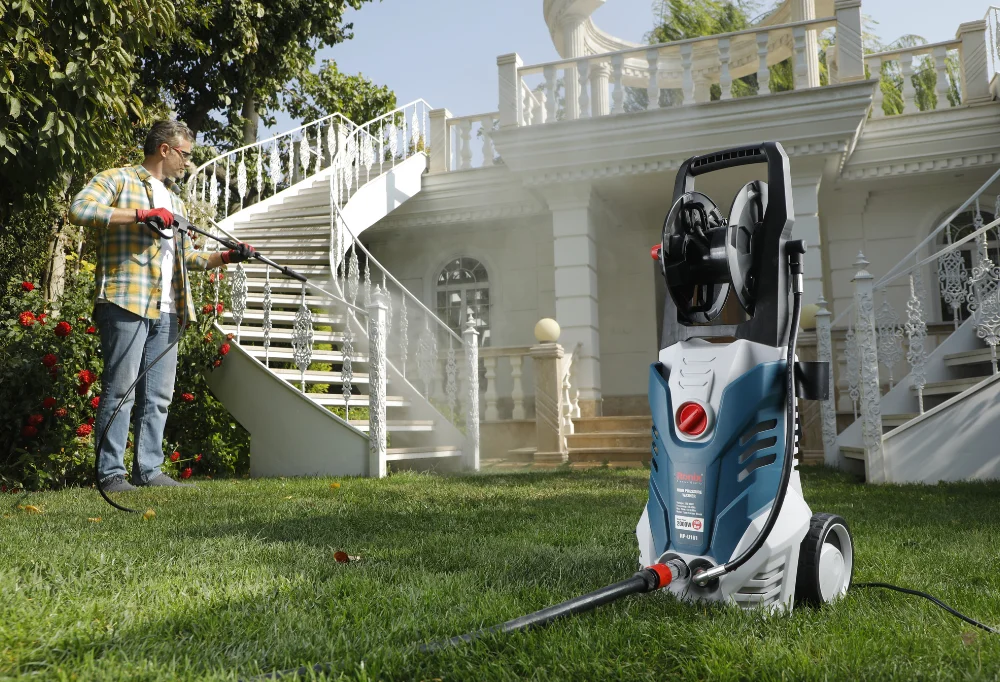
If you are not going to use it a lot, you’d probably be better off with a cordless pressure washer. We’ve talked about the advantages of electric models so you know why they would be the better option, but if you have a large property or the job’s just tougher, probably better to go for gas-powered ones.
Best Commercial Pressure Washer
Obviously, the pressure washer you use at home wouldn’t possibly do anything for the commercial and industrial settings. When you want to clean really large environments and/or if you are running a business, you are going to use your pressure washer frequently and heavily. In these situations, a heavy-duty commercial pressure washer becomes a must-have to get everything shiny, which is different from the normal customer models. They have higher pressure, bigger flow rates, and better durability.
So, what are the things you should look for?
High PSI and GPM: We are getting into big numbers now. No more 1000-2000 PSI, we need at least 4 to 5 thousand PSI and a GPM of 4.0 or more. That’s gonna give you the necessary power to remove stubborn stains, clean huge areas fast, or clean big industrial equipment.
Durability: Anyone who has ever been in an industrial environment knows how harsh they can be. Every day can be the day some new harsh condition develops, so you need a sturdy housing, high-quality hoses, and something that stands the test of time.
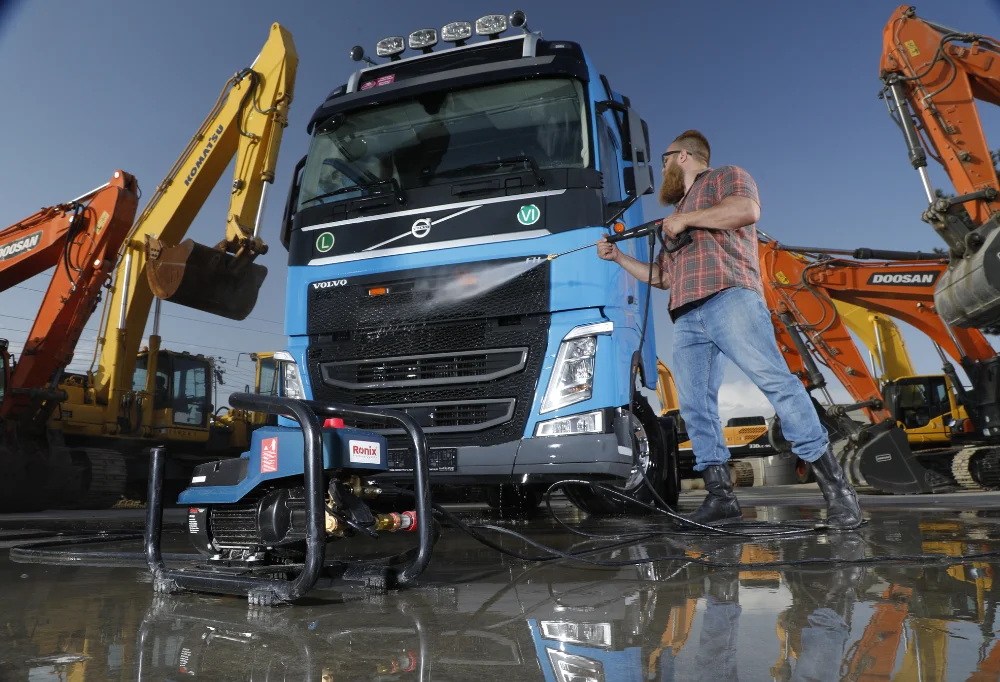
Power Source: Raw power is what you need to go for. Gas-powered pressure washers are the best choice for commercial uses. They give you more power and are portable, making them better than electric ones in this context. There are also diesel-powered ones which are MUCH more powerful but also much more expensive. We are talking like 5000 dollars or even stuff up to 24-5k!
Hot Water: Some industrial pressure washers have a hot water option. This is really effective for getting rid of grease, oil, or other residue. Especially useful in the food industry.
Long Runtime: Larger fuel thanks, air-cooled engines, and thermal protection. Does wonders for a longer runtime in pressure washers.
Getting a commercial pressure washer can really increase your business’ productivity, help you handle stuff you normally wouldn’t be able to, and drastically decrease the labor time.
Best Pressure Washer for Concrete
Concrete has become a big part of our lives, whether at home, on the street, or at work. You see concrete embedded in the constructions or the ground everywhere you look, and for good reason too. It’s a tough material that can go through traffic, cars, every weather, stuff being spilled on it, and still come out victorious. As tough as they are, they get dirty and moldy, but pressure washers can still revive them. Get one with 3000 PSI, 2.5-3 GPM, and an electric power source, and you are good to go!
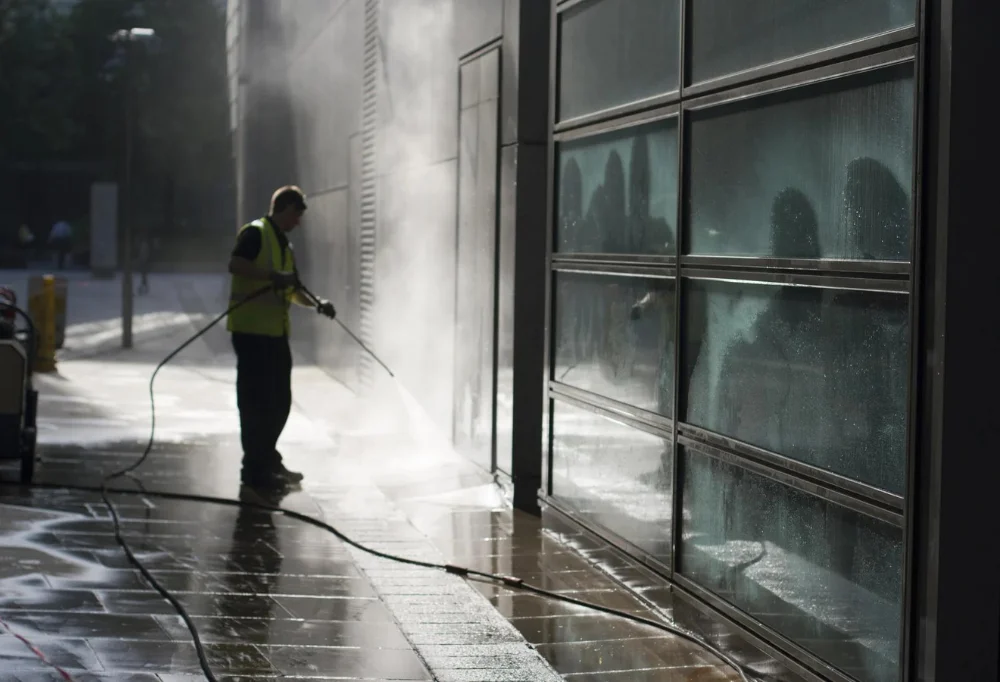
Best Budget Pressure Washer
Finding a pressure washer in your budget range doesn’t necessarily mean you are getting bad quality; you just need to choose the right one. If you are getting a power washer for the house, don’t get something too powerful, it just needs to be effective without the extra money. Electric models are also usually the most common and the cheapest option, perfect for home use.
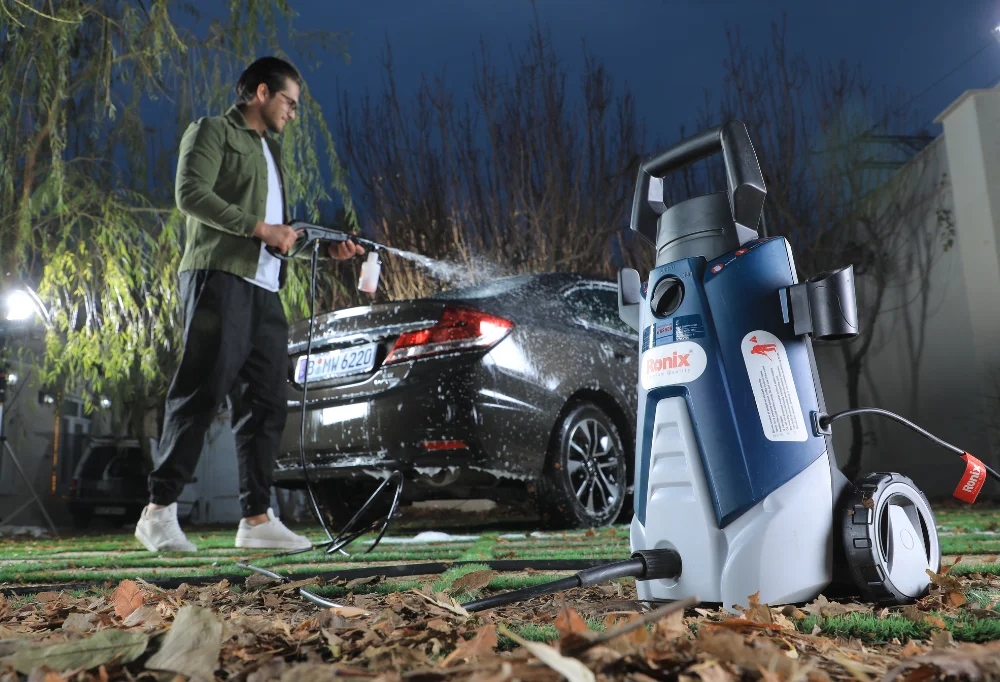
Pressure washers are great investments to keep the home and the car clean without overspending. Just try to get the best value for the money. One place you could look to find the best budget pressure washer is Ronix. The Ronix RP-0140 pressure washer is a great example, with its 2000 PSI and 1.7 GPM capabilities. It’s perfect for home use with its 1800W induction motor that generates enough power for the tasks you have at hand, the ergonomic design, and the wheels/handles that make moving it a breeze.
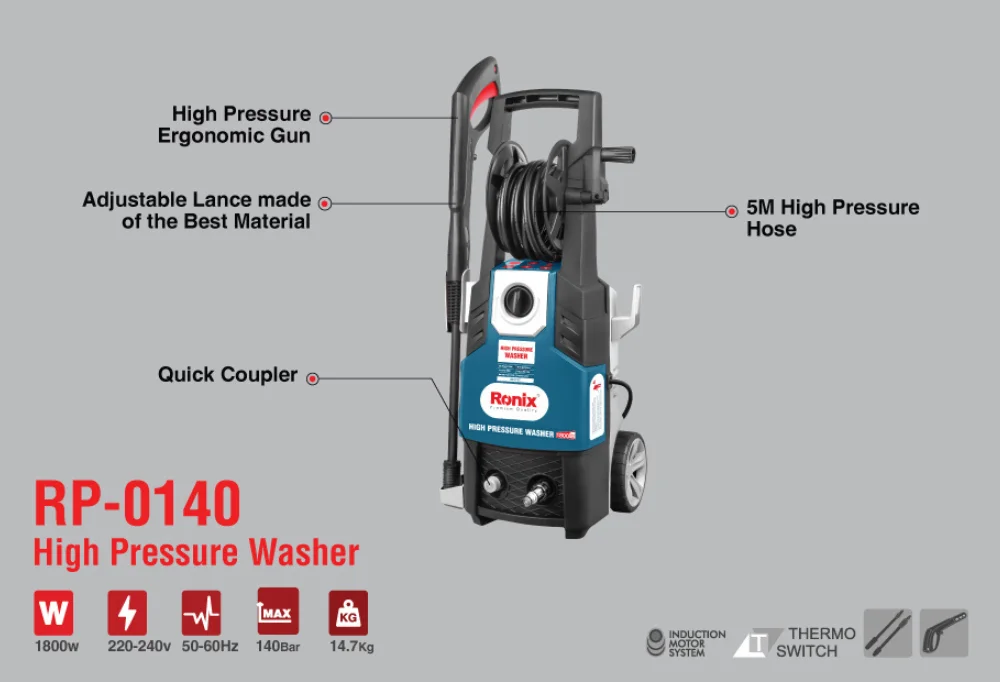
Best Small Pressure Washer
If you have limited space and you don’t know where to store your pressure washer, you should get an ultra-portable one that is easy to move, easy to store, and just light overall. It’s the perfect solution to your lack of space, you can just store it in a closet. There is some compromise on power though, smaller models usually have up to 1700 PSI and up to 1.5 GPM. It’s great for people who want a cleaning option without trying to fit an elephant into the closet.
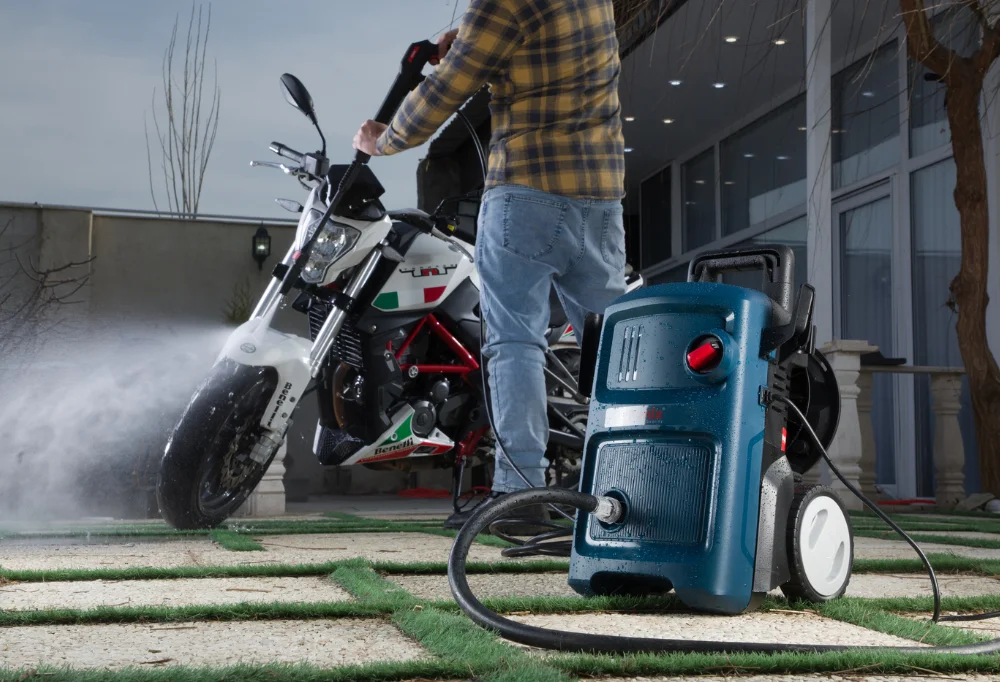
Best Pressure Washer for Siding
Keeping the siding of your house clean is one of the keys to being the most beautiful house in your neighborhood (and being able to show off, obviously). Pressure washers will get the job done, whether wood, vinyl, or brick.
The best range for this job is 2000 to 2800 for PSI and 1.4 to 2.5 GPM. For the nozzle, you are better off with a 25-degree nozzle, if you are working on something a bit sturdier, or a 40-degree one if you are working on something delicate. An extended want can help too if you have a tall house!
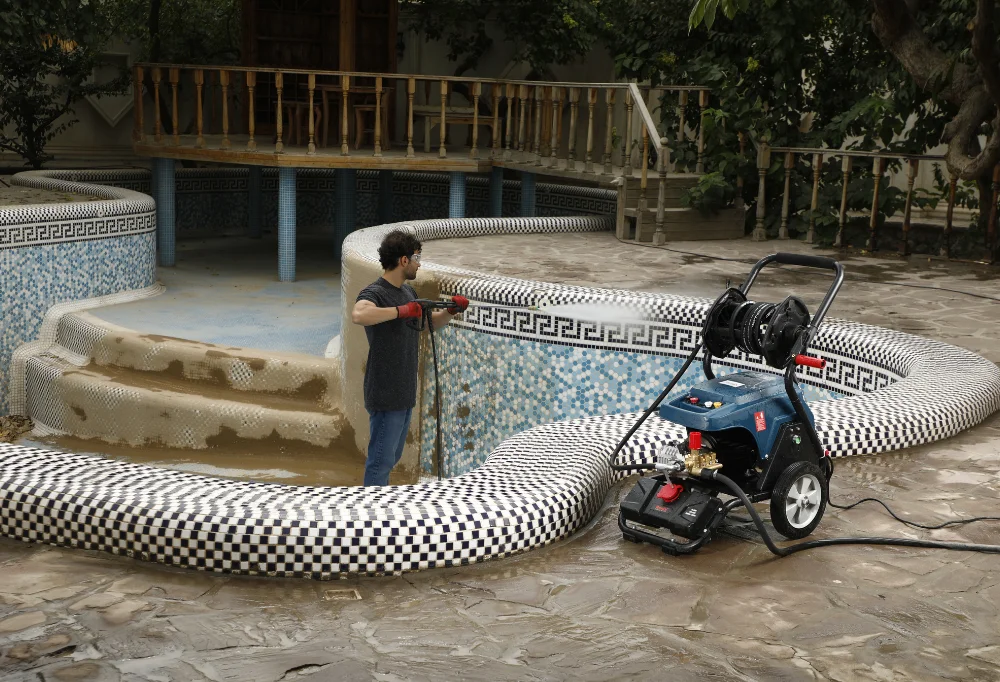
In the end, choosing the right pressure washer can only happen when you understand your needs and what the task is. Whether you are cleaning your car, the house sidings, or you are doing heavy-duty commercial projects, there’s a pressure washer designed for you. By considering everything we have talked about, you can invest in a pressure washer that matches your budget and delivers the performance you need, so good luck with your choice!
FAQ
What is the best pressure washer?
For home use, an electric washer with 1500 to 2500 PSI works well. For heavy-duty or commercial tasks, choose a gas-powered washer with over 4000 PSI. For cars, an electric model with 1200 to 1900 PSI is ideal.
Who makes the best pressure washer?
DeWalt for durability and power, Ryobi for a balance of quality and price, Ronix for budget-friendly options, and Sun Joe for lightweight electric models. Your choice depends on what you need, and how much your budget is.

Ronix
1 September 2024
